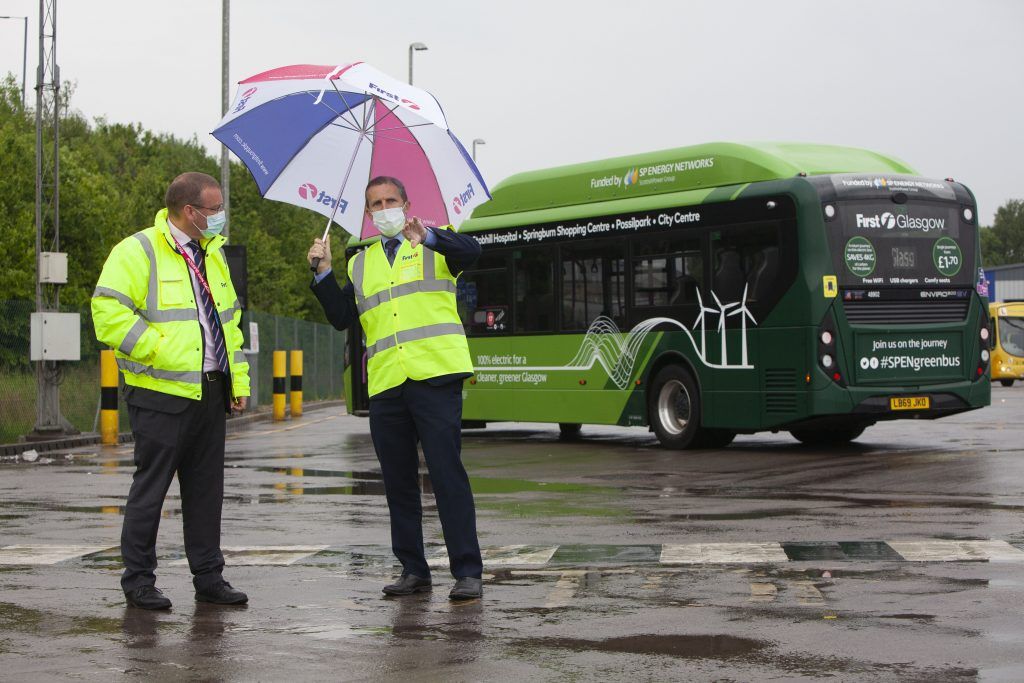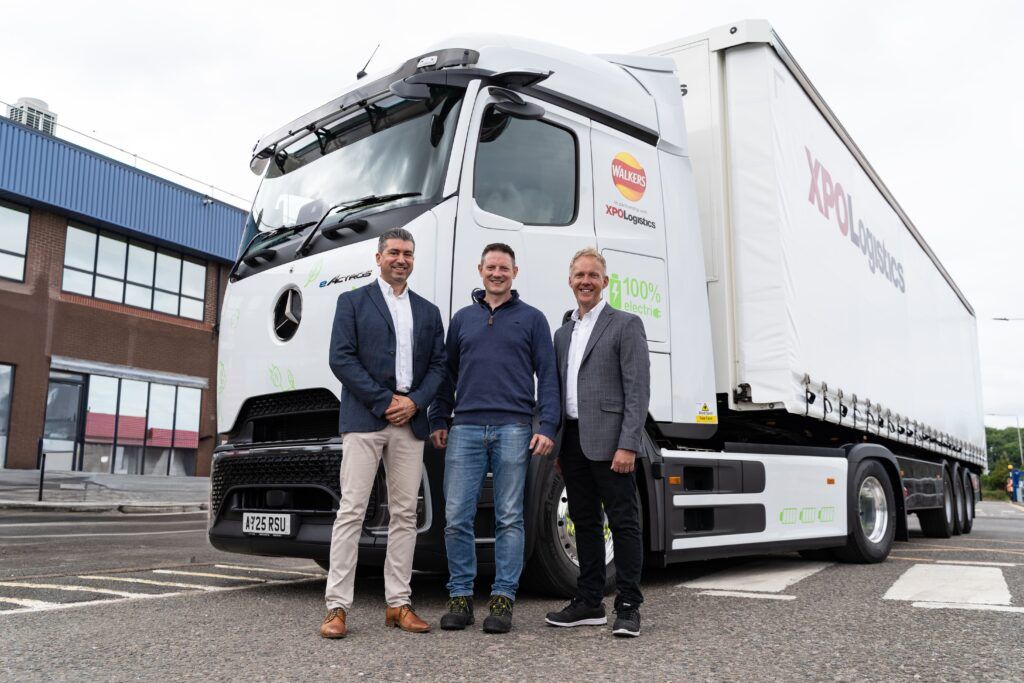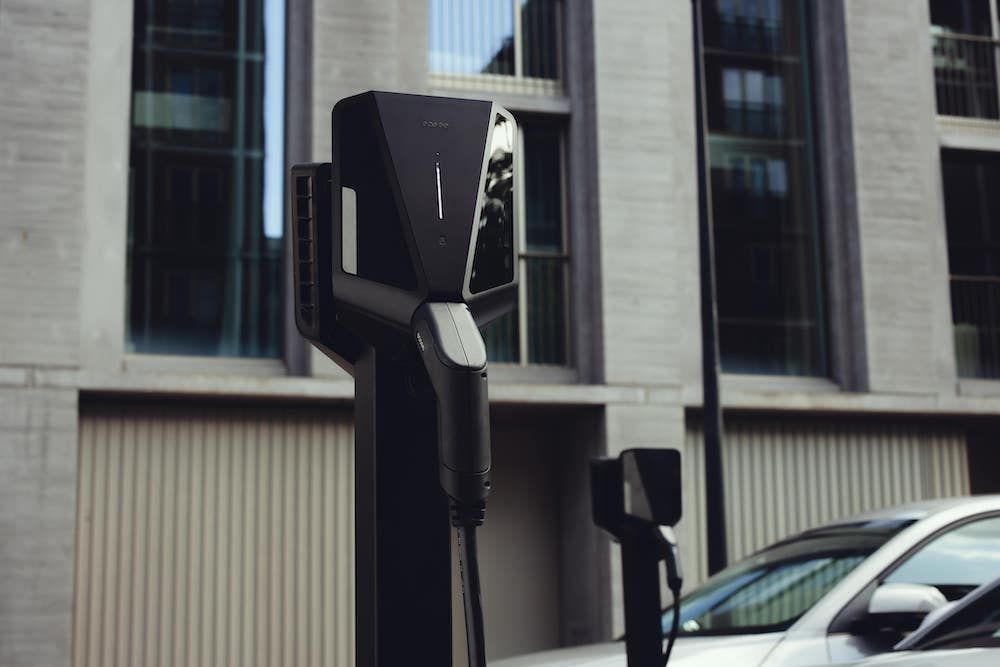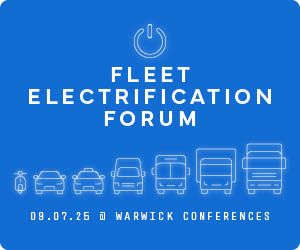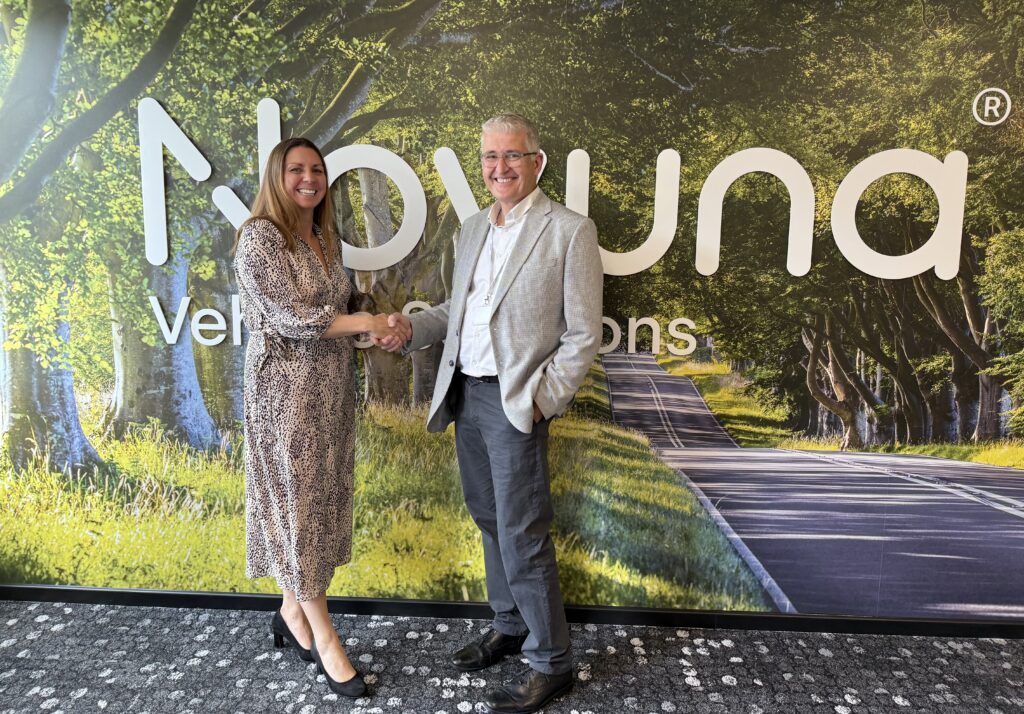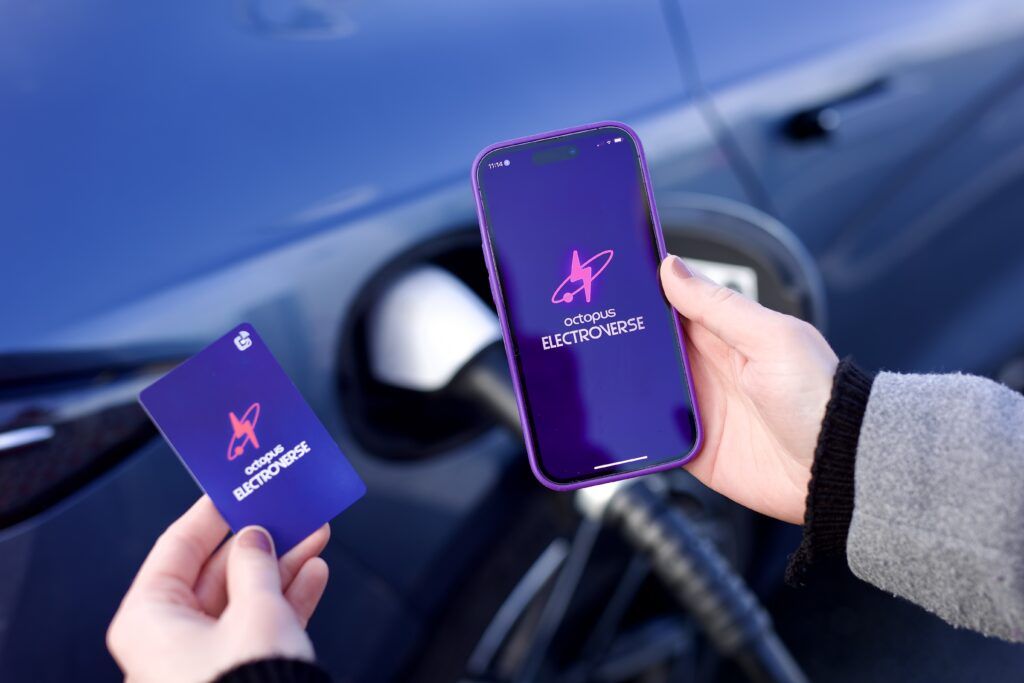First Bus has started work on an ambitious project to turn its flagship Glasgow depot into the UK’s largest electric vehicle charging hub.
The company, which has pledged to only invest in zero-emission vehicles from December 2022 and have a 100% zero-emission fleet by 2035, says the hub will have space to charge up to 300 EV buses on site.
The project will be completed in phases over the next 18 months. The first phase of the project, now underway, will see 11 dual DC rapid charging units installed, with an additional 69 installed in phase two from this summer, increasing the number of chargers on the site to 162.
Phase one of the depot transformation is expected to be complete by September this year, allowing for the introduction of a further 22 electric buses to Glasgow’s streets ahead of the COP26, the United Nations Climate Change conference.
This transformation is being supported by £35.6m in part funded by £28.2m from the Scottish Government’s Scottish Ultra Low Bus Scheme (SULEB).
Janette Bell, Managing Director for First Bus UK, said: “First Bus is at the forefront of the green transport revolution, and we continue to fast-track our efforts to surpass passenger expectations. We are proud to be announcing the UK’s largest EV charging infrastructure as part of our transition to a zero-emission fleet.
“We are making excellent progress on our commitments to reduce air pollution and carbon emissions in our communities. By improving the air quality in the areas we operate within, we are supporting the health of our customers, and by cutting carbon emissions we are putting our weight behind Scotland’s ambitious plans for tackling the global threat of climate change.
“Launching this project at Caledonia depot, the largest of its kind, is a very exciting next step and reinforces that both First Bus and our stakeholders are making continued investment in the future of bus.”
Following completion, the adapted depot will have the capability to charge 89% of the depot’s electric bus fleet at the same time using smart charging software. First Bus’ long-term objective is to ensure that the site is fully prepared for the transition to a 100% zero-emission fleet. This will include opportunities for further on-site renewable energy generation and storage.
Andrew Jarvis, Portfolio Managing Director, responsible for First Bus’ operating companies in the devolved nations, including First Glasgow said: “This is an ambitious and exciting plan that will have positive implications for the entire city of Glasgow. We’re thrilled that Transport Scotland understood our vision from the very beginning and that we are starting work on this large-scale project that will help us move closer towards a zero-emission fleet.
“Over the coming months we will take delivery of 22 ADL/BYD EV buses from Alexander Dennis Limited (ADL) in Falkirk, with a further 126 buses delivered and in service over 2021 and 2022, with the order complete by spring 2023.”
Michael Matheson, who was recently named Cabinet Secretary for Net Zero, Energy and Transport, commented: “Through this £35 million pound investment, First Bus continues to demonstrate its commitment to decarbonising its bus fleet, improving air quality and responding to the climate emergency.
“I’m pleased that the Scottish Government have been able to support this infrastructure project, including the purchase of new electric buses, with an additional £28 million through two rounds of the Scottish Ultra Low Emission Bus Scheme. This investment is bringing green jobs and opportunities across Scotland, including for Scottish Power working on the electrical infrastructure in Glasgow and for Alexander Dennis in Falkirk leading on the manufacturing of new fully electric buses.
“Working in partnership, including through our Bus Decarbonisation Task Force, we can accelerate the transition to a zero-emission bus fleet and support Scotland’s world leading net zero target.”
Each rapid charging station at the transformed depot will be controlled via smart charging software to ensure that power is used in the most efficient way. This will minimise the draw down from the National Grid at peak times. The digital programming will also mean that each vehicle is fully charged, and the interior is preheated, ready for drivers and customers from the moment they leave the depot.
First Bus’s power solutions partner for this project is Dutch company Heliox – a leader in fast charging systems for public transport, trucks and heavy duty vehicles and equipment.
Michael Colijn, Chief Executive Officer at Heliox Group, said: “We are marking a big step in zero-emission public transport with the development of the First Bus Caledonia depot. As one of the largest bus operators in the UK, First Bus have chosen Heliox’s market leading rapid, scalable and modular charging system which can handle high demanding bus routes and easily grow with fleets fast charging needs by ensuring power demand is utilised at the most efficient time.
“With Heliox’s experienced team, we are confident working with the most ambitious fleet operators on their path to electrification, streamlining their trajectory to zero-emissions. We are now at a stage where the total cost of ownership of e-buses is competitive with diesel buses. Besides dramatically improving air quality it makes financial sense to go electric, and we are excited to be part of this ground-breaking project.”
Image courtesy of First Bus.



